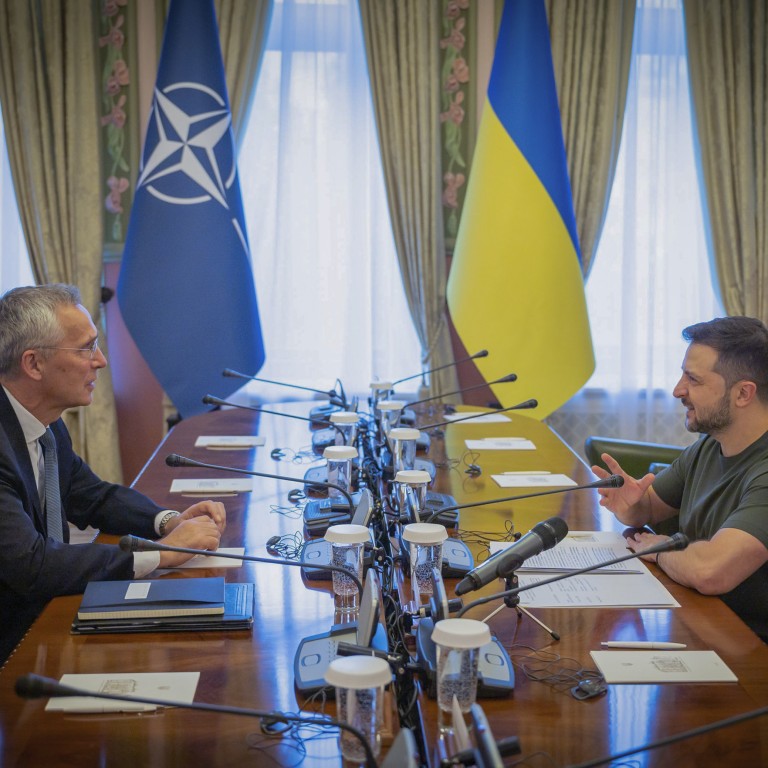
Letters | Nato membership won’t be Ukraine’s saviour
- Readers say Ukraine’s Nato status is unlikely to change the course of the war, and praise atomic bomb survivor Japan’s decision to finally screen Oppenheimer film
Should Nato become more involved in the Russia-Ukraine war or even consider granting Ukraine membership? And would Nato membership protect Ukraine from Russian aggression?
In other words, even if Ukraine had membership, Nato members are not obliged to get involved if they deem it unnecessary. And if, as is likely, some Nato members object to going to war on Ukraine’s behalf, Russian President Vladimir Putin would no doubt use it as a wedge to further weaken and divide the transatlantic alliance. Besides, if Nato really were eager to get directly involved, it could have done so already.
Nato membership for Ukraine is not the antidote to this toxic war of attrition. And it is unthinkable that Putin would back down merely because Ukraine formally joined Nato.
The grinding conflict is unlikely to end without giving Putin some face-saving way out. But rewarding such a brutal bully is unconscionable. The West’s political will to support Ukraine may weaken with a Trump presidency in the US, even if former Soviet states, fearing the return of the Russian empire, will probably support Ukraine to the bitter end.
Come what may, Nato membership is unlikely to make any difference.
Christophe Feuille, Bordeaux, France
Japan was right to allow Oppenheimer screening
The film makes heroes of the scientific and military leadership responsible for this destructive invention, as well as the political leaders who authorised its use. The US race to develop the bomb was to prevent the Germans from inventing such a powerful weapon first.
Such glorification is understandably difficult to stomach in a country where generations have suffered because of the bombing. The film is also a reminder of the haste with which the bombs were deployed – within weeks of a successful test, the bombs were dropped on Japan. A controversial decision even back in 1945, the bombings immediately killed an estimated 200,000 people, mostly civilians, in two thriving Japanese cities, even if that decision, as some have argued, prevented loss of life on both sides due to a continuing war.
Recently, on a visit to both Hiroshima and Nagasaki after watching Oppenheimer, I was struck both by the immense suffering endured and the optimistic message of the peace memorial museums in these cities: that the world should see a ban on nuclear weapons.
Realists may despair of this ever happening. In the intervening years, countries have developed thousands of these destructive bombs, now capable of being mounted on hypersonic missiles. One shudders at the mindlessness of the human race towards self-destruction.
Sutinder Bindra, Discovery Bay

